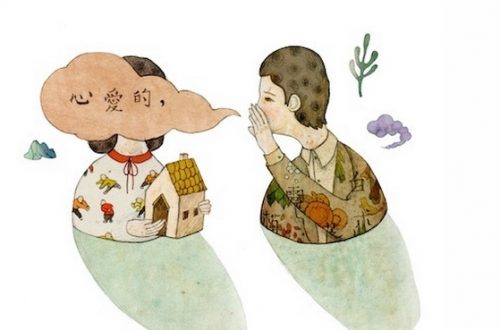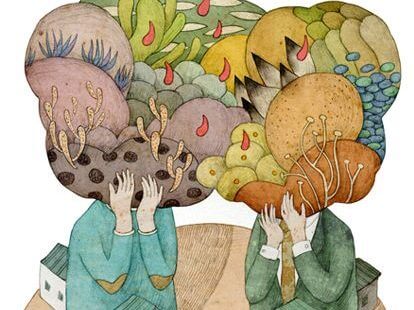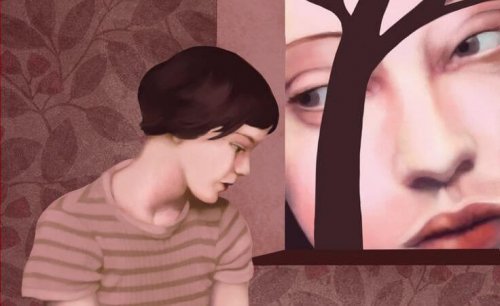Microaggressions in a Relationship: A Couple's Worst Enemy


Written and verified by psychologist Valeria Sabater
Microaggressions are a hidden form of psychological abuse based on persistent, daily snubs–the kind of humiliation where the other person uses jokes or mockery to whittle away at your self-esteem. Microaggressions in a relationship can be even more insidious.
This is the type of abuse you don’t hear about as much because it’s not as obvious. It doesn’t leave marks, and a lot of the time neither the abuser nor the victim are aware of the fact that something so destructive is going on.
Here are some examples to help explain what we’re talking about.
It’s common for both men and women to tell each other things like: “I love how clumsy you are, it always makes my day when you break things.”
“I had better do the talking, you might mess it up if you do it”, “Wait, don’t, just let me do it. With those butterfingers of yours, you’ll probably break it.”
As you can see, there’s a certain sense of love and intimacy in these statements, but it actually just puts all the control in one person’s hands and denies it to other person.
We encourage you to dig deeper into this topic and learn more about this type of verbal abuse. It can happen to any one of us, whether with a partner, at work, school, or in any other part of your daily life.
Characteristics of microaggressions

When one of these dimensions fails, the rest become weaker. Without good communication, for example, it’s impossible for there to be true empathy. Without empathy, it’s impossible for there to be true mutual understanding.
A happy, healthy relationship is like a strong fabric full of different colors that go well together. The differences are okay because there’s a balance between all the threads making up the fabric.
Now, microaggressions are like pulling out one small thread every day. You don’t really notice it at the time, but it eventually weakens the whole thing and leaves holes that happiness and harmony escape out of.
Let’s look at the main characteristics of microaggressions in a relationship.
Microaggressions in a relationship
Inattentiveness and underestimation
Inattentiveness and underestimation basically involve a noticeable lack of interest in the other person. This means it’s the kind of relationship microaggression that happens on a daily basis.
Here are a few little examples of a couple’s “worst enemy:”
- Making fun of what the other person likes.
- Lacking the kind of thoughtfulness that keeps relationships going.
- Never having time to do what the other likes to do (“it’s never a good time”).
- Mocking what the other person likes in front of other people (“she just spends all day reading, what a waste of time…”)
Rejecting the other person, making them feel dumb

This is definitely one of the most common characteristics of microaggressions in a relationship, and in general.
The complicated part is that it often starts as a way of spoiling the other person. In other words, you might do it thinking it’s innocent, just another way to show love and affection.
Here are some examples to give you an idea:
- The other person starts to take charge of things because they claim that “they do it better than you, and that way it’ll save you some work.”
- They might talk about your supposed flaws in front of friends and family. “She just can’t cook, anything she touches she breaks, you should see what she did to the computer…”
- All of this is very harmful and erodes your sense of identity and self-esteem.
Read more:
I Was in a Toxic, Damaging Relationship Too
Lack of trust in the other person

As you keep on getting hit with these microaggressions, you might start to go through personal changes.
Besides noticing that it’s destroying your self-esteem, you might also realize that you don’t trust the other person anymore.
- You avoid doing certain things because you’re afraid of being chastised or criticized.
- You also stop being able to comfortably communicate with them because their language is always full of harmful sarcasm.
It’s also common for abuse victims to be very slow to react to this kind of microaggression. You internalize the idea that an abuser hits with their hands, raises their voice, or inhibits your freedom, and that this doesn’t count.
Learn more:
Microaggressions are like microscopic assaults, you hardly notice them, But, they are assaults. Don’t forget why:
- They’re based on tearing the other person down.
- They reject the other person for the sake of gaining power.
- They don’t let the other person be themself or feel whole and happy for being who they are and liking what they like.
- Microaggressions make it so your good points, strengths, and achievements don’t matter anymore. The other person uses them to make those things fade away.
Learn to identify microaggressions in a relationship. Be strong and have the courage to face them.
All cited sources were thoroughly reviewed by our team to ensure their quality, reliability, currency, and validity. The bibliography of this article was considered reliable and of academic or scientific accuracy.
- Bourdieu, P., y Passeron, J. C. (2001). “Fundamentos de una teoría de la violencia simbólica”. En La reproducción. Elementos para una teoría del sistema de enseñanza. Madrid: Popular, pp. 15-85.
- Hirigoyen, M. F. (1999). El acoso moral: el maltrato psicológico en la vida cotidiana. Buenos Aires: Paidós.
- Velazquez, S. (1996). “Extraños en la noche”. En Burin, M., y Dio Bleichmar, E. Género, psicoanálisis, subjetividad. Buenos Aires: Paidós.
This text is provided for informational purposes only and does not replace consultation with a professional. If in doubt, consult your specialist.








